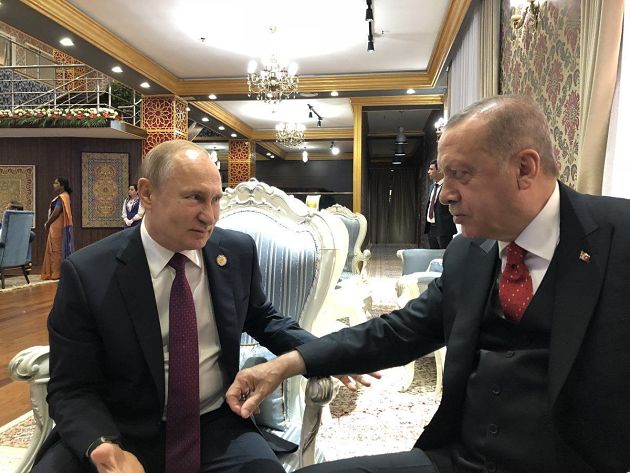The talks between Erdogan and Putin on the situation in Idlib, which took place yesterday in Moscow, were without exaggeration the main topic of world politics last week. The disappointment with the results was even greater among the supporters of a tough stance in both opposing camps.
If we talk about the Sunni and pro-Sunni camp, many of them were disappointed that Erdogan, who agreed to consolidate the status quo that emerged as a result of the regime’s offensive in Idlib, did not publicly fulfill his commitments to ensure the withdrawal of the regime forces from the positions they occupied during this offensive at any cost. But how could Erdogan achieve the fulfillment of these promises? We have repeatedly given the answer to this question in our recent comments on these events – only a large-scale, full-fledged war against the regime forces, with a high probability of escalating into a war against the Russian group in Syria, and then into a Turkish-Russian war.
Many Muslims would have enthusiastically supported Turkey in such a war, and objectively it would have had a chance to win on the Syrian battlefield. However, this scenario would have been acceptable to Turkey only if there was a guarantee that Russia would not use nuclear weapons against it. And perhaps that would have been the case, because is Syria worth the Russian ruling elite risking a nuclear war with the NATO alliance by launching nuclear strikes against a country that is a member of NATO? That is a big question. But maybe not, because the demonstrative defeat of the Russian group in Syria by Turkey would have been a moral-political destruction of the Putin regime, and then it would have had nothing to lose.
Erdogan chose a different path – he demonstrated his strength, he compromised his positions at the expense of his own political reputation, but based on sound political sense. He can be blamed in this case, but not for that, but for bringing the situation to a point where it was already impossible to resolve, or could be resolved, but by taking the risks he was not willing to take. However, as the past week of hostilities has shown, if Erdogan had done the same thing in the early stages of the regime’s offensive in Idlib, he would not have had to demand and promise the impossible, that the enemy would give up what he had won by force.
Turkish drones, aviation, artillery and intelligence proved their effectiveness in the first days of their massive use, but the fact remains that without a full-scale ground operation, their capabilities were limited. As a result, the regime’s forces quickly adapted and regained the initiative in certain directions, albeit at a much slower pace for fear of being shot down from the air. Nevertheless, Turkey could only decisively change the course of the fighting by deploying its ground forces, and by that time Ankara understood that it would not be able to avoid a direct confrontation with Russia, whose aerospace forces would certainly start bombing them.
At the same time, everyone understands that the ceasefire concluded yesterday is of a purely technical and humanitarian nature, as it does not eliminate any of the reasons that provoked the recent upsurge in hostilities in Idlib. The Assad regime and its backers do not give up their goal of regaining control over Syrian territory, and Turkey, for its part, promises to respond harshly to any attacks, not only in Idlib, but throughout Syria.
Therefore, it can be said that the war has only been frozen, not ended. The only question is when it will thaw again and what each of the opposing sides will resort to until then. As for Erdogan’s numerous unfulfilled promises (from the capture of Manbij to the return of Assad’s forces to the lines of the Sochi agreements), it seems that it is time to consider them as elements of trade, when the seller sets an inflated price for the goods, assuming in advance that he will have to lower it.
But is there a price below which Erdogan really does not want to go under any circumstances? Many would like to have an answer to this question…

